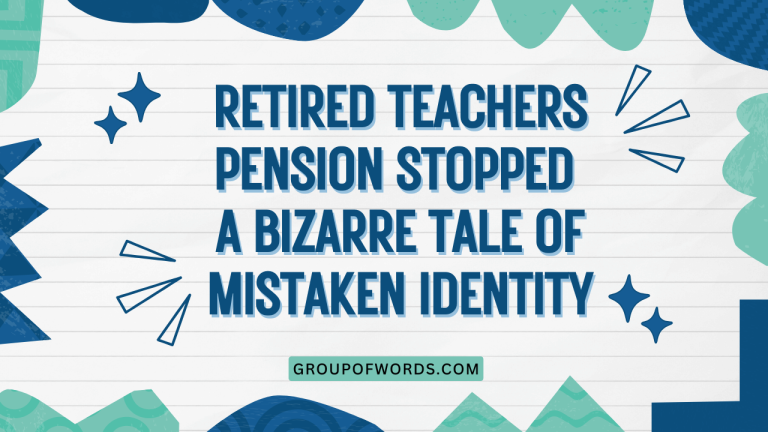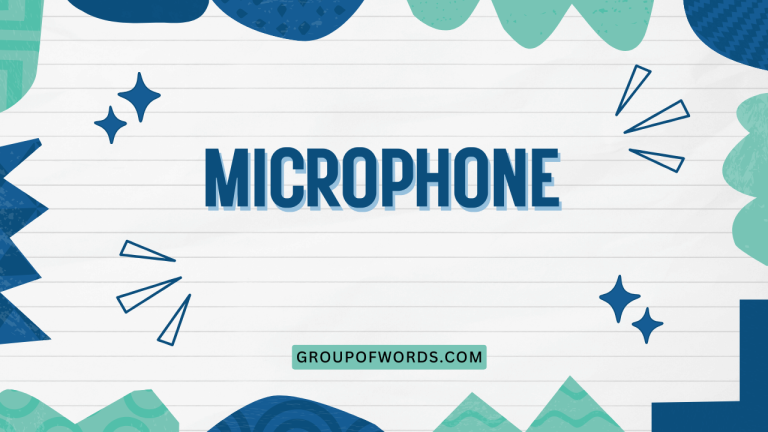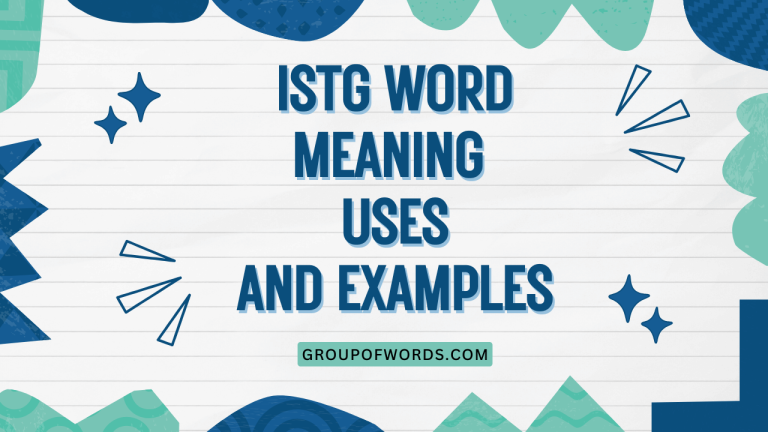Refined Rhetoric: Mastering Nice Words That Start With “R”
The English language is rich with words that can evoke positive emotions and convey respect, admiration, and kindness. Words beginning with the letter “R” are no exception.
Mastering the use of these “nice” “R” words can significantly enhance your communication skills, allowing you to express yourself more effectively and build stronger relationships. This article explores a range of positive “R” words, providing definitions, examples, usage rules, and practice exercises to help you incorporate them into your everyday vocabulary.
Whether you are an English language learner or a native speaker seeking to refine your rhetorical skills, this comprehensive guide will empower you to use these words with confidence and precision.
Understanding these words is not just about knowing their definitions; it’s about appreciating their nuances and using them appropriately in various contexts. This article aims to provide that depth of understanding, ensuring that you can use these words to create a more positive and impactful impression.
Table of Contents
- Definition of Nice Words Starting with “R”
- Structural Breakdown
- Types and Categories of Positive “R” Words
- Examples of Nice Words Starting with “R”
- Usage Rules for Positive “R” Words
- Common Mistakes When Using “R” Words
- Practice Exercises
- Advanced Topics: Nuances and Connotations
- Frequently Asked Questions
- Conclusion
Definition of Nice Words Starting with “R”
The term “nice words” is subjective and context-dependent, but in this article, it refers to words that carry positive connotations, evoke pleasant emotions, or express approval, admiration, or kindness. When specifically looking at words starting with the letter “R,” these words can range from describing admirable qualities to offering comfort and support.
They are often used to build rapport, encourage positive behavior, and create a more agreeable atmosphere.
These words can function as adjectives, adverbs, nouns, or verbs, depending on the specific word and its usage in a sentence. For example, “remarkable” is an adjective, “reassuringly” is an adverb, “repose” can be a noun, and “rejoice” is a verb.
Understanding the grammatical function of each word is crucial for using it correctly.
The context in which these words are used plays a significant role in their effectiveness. A word that is considered “nice” in one context might be inappropriate or even offensive in another.
Therefore, it’s essential to consider the audience, the situation, and the overall tone of the communication when choosing which “R” word to use. Words like “regal” might be suitable to describe a queen, but inappropriate to describe a coworker.
Structural Breakdown
Most English words starting with “R” follow typical English morphological patterns. The letter “R” itself often influences the pronunciation and can be part of various prefixes and suffixes that alter the meaning of the base word.
Understanding these structural elements can aid in recognizing and remembering new words.
Many positive “R” words are formed by adding prefixes or suffixes to existing root words. For example, the prefix “re-” can indicate repetition or renewal, as in “reassure” or “rejoice.” The suffix “-able” or “-ible” can indicate capability or suitability, as in “reliable” or “responsible.” Recognizing these patterns can help you decipher the meaning of unfamiliar words.
Furthermore, the phonetic properties of “R” in English, particularly the way it influences vowels, are important. The “R” sound can change the pronunciation of a preceding vowel, creating distinct sounds that contribute to the word’s overall impact.
For example, the “ar” sound in “remarkable” differs significantly from the “e” sound in “regal.”
Types and Categories of Positive “R” Words
Positive “R” words can be categorized based on the specific positive attribute they convey. Here are some key categories:
Respectful Words
These words convey admiration, esteem, and politeness. They are used to acknowledge someone’s value or importance.
Examples include: respectable, revered, regal, refined, righteous, renowned.
Reassuring Words
These words offer comfort, security, and confidence. They are used to alleviate fears and uncertainties.
Examples include: reliable, restful, restorative, resilient, responsive, reassuring.
Remarkable Words
These words describe something outstanding, noteworthy, or exceptional. They are used to express admiration for something that stands out.
Examples include: radiant, rare, rapturous, refreshing, resounding, robust.
Radiant Words
These words evoke a sense of brightness, joy, and positivity. They are used to describe things that shine or bring happiness.
Examples include: radiant, rejoicing, receptive, regal, resplendent, romantic.
Resourceful Words
These words describe someone capable, adaptable, and clever in utilizing available resources. Examples include: resourceful, ready, reasoned, receptive, reformed, rejuvenated.
Examples of Nice Words Starting with “R”
The following sections provide examples of positive “R” words, categorized by their specific positive attribute.
Respectful Words Examples
This table includes example sentences using respectful words that start with the letter “R.”
| Word | Example Sentence |
|---|---|
| Respectable | He comes from a respectable family with a long history of public service. |
| Revered | The Dalai Lama is a revered spiritual leader around the world. |
| Regal | The queen’s presence was regal, commanding attention and respect. |
| Refined | Her refined manners and sophisticated taste made her a delightful guest. |
| Righteous | He was known for his righteous indignation against injustice. |
| Renowned | The chef is renowned for his innovative and delicious cuisine. |
| Reverent | The crowd maintained a reverent silence during the memorial service. |
| Recognized | Her contributions to the field were recognized with a prestigious award. |
| Redoubtable | The lawyer was a redoubtable opponent in the courtroom. |
| Representative | The committee included a representative sample of the community. |
| Reputable | The company has a reputable history of ethical business practices. |
| Respected | She is a highly respected figure in the scientific community. |
| Responsible | He is a responsible and dedicated employee. |
| Responsive | The government was responsive to the needs of the people. |
| Reasonable | The price of the car was reasonable and fair. |
| Regular | He is a regular volunteer at the local soup kitchen. |
| Rational | Her decision was based on rational and logical thinking. |
| Realistic | It is important to have a realistic understanding of the situation. |
| Ready | The team is ready to compete in the championship game. |
| Receptive | The audience was receptive to the speaker’s message. |
| Reciprocal | The two countries have a reciprocal agreement on trade. |
| Recognizable | His face is recognizable around the world. |
| Recommended | The restaurant was recommended by several friends. |
| Reconciled | The two parties were able to be reconciled after the dispute. |
| Recovered | She has recovered from her illness and is back at work. |
| Rectified | The mistake was quickly rectified by the team. |
| Redeemed | He redeemed himself after his earlier mistakes. |
| Reduced | The price was reduced to make it more affordable. |
| Refined | The process was refined to improve efficiency. |
Reassuring Words Examples
This table includes example sentences using reassuring words that start with the letter “R.”
| Word | Example Sentence |
|---|---|
| Reliable | He is a reliable friend who is always there when you need him. |
| Restful | After a long day, a restful night’s sleep is essential. |
| Restorative | The spa offers restorative treatments to rejuvenate the body and mind. |
| Resilient | She is a resilient person who always bounces back from adversity. |
| Responsive | The customer service team is responsive and helpful. |
| Reassuring | His calm demeanor was reassuring during the crisis. |
| Refreshed | After the vacation, she felt refreshed and ready to work. |
| Renewed | The contract was renewed for another year. |
| Resolved | The issue was quickly resolved to everyone’s satisfaction. |
| Relaxed | He felt relaxed after the yoga session. |
| Released | The tension was released after the good news. |
| Remedied | The problem was quickly remedied by the technician. |
| Repaired | The damage was quickly repaired after the storm. |
| Replenished | The supplies were replenished after the sale. |
| Rescued | The hikers were rescued from the mountain. |
| Reserved | A table was reserved at the restaurant for the party. |
| Resisted | He resisted the temptation to cheat on the test. |
| Revived | The plant was revived after being watered. |
| Rewarded | The student was rewarded for his hard work. |
| Rooted | His beliefs are rooted in his faith. |
| Rested | She felt rested after a long nap. |
| Retained | He retained all the information from the lecture. |
| Returned | She returned the borrowed book to the library. |
| Revealed | The truth was finally revealed after years of secrecy. |
| Reviewed | The document was carefully reviewed before being signed. |
| Revisited | The issue was revisited to find a better solution. |
| Revitalized | The economy was revitalized by the new policies. |
| Righted | The wrong was righted after the investigation. |
| Robust | The economy has shown robust growth this year. |
Remarkable Words Examples
This table includes example sentences using remarkable words that start with the letter “R.”
| Word | Example Sentence |
|---|---|
| Radiant | Her radiant smile lit up the entire room. |
| Rare | A rare opportunity presented itself, and he seized it. |
| Rapturous | The audience gave a rapturous applause after the performance. |
| Refreshing | A refreshing breeze swept through the open window. |
| Resounding | The team achieved a resounding victory in the final game. |
| Robust | The company reported robust earnings for the quarter. |
| Recognized | His talent was recognized by the industry leaders. |
| Refined | The wine has a refined taste and aroma. |
| Remarkable | The progress she has made is truly remarkable. |
| Resplendent | The bride looked resplendent in her white gown. |
| Romantic | The restaurant has a romantic atmosphere. |
| Rousing | The speech was a rousing call to action. |
| Royal | They received a royal welcome upon arriving in the country. |
| Ruling | The court issued a ruling in favor of the plaintiff. |
| Rhythmic | The music had a rhythmic beat that made everyone want to dance. |
| Rightful | He claimed his rightful inheritance. |
| Ripe | The peaches were ripe and juicy. |
| Rising | The sun was rising over the horizon. |
| Ritual | The ceremony followed a traditional ritual. |
| Riveting | The story was so riveting that nobody wanted to leave. |
| Roaming | The cattle were roaming freely in the pasture. |
| Roaring | The crowd gave a roaring cheer. |
| Rollicking | The party was a rollicking good time. |
| Rooted | The tree was firmly rooted in the ground. |
| Rosy | She had a rosy complexion. |
| Rotating | The Earth is constantly rotating on its axis. |
| Rounded | The edges of the table were rounded for safety. |
| Routine | He follows a strict daily routine. |
| Rowdy | The crowd was rowdy after the game. |
Radiant Words Examples
This table includes example sentences using radiant words that start with the letter “R.”
| Word | Example Sentence |
|---|---|
| Radiant | The bride’s face was radiant with happiness on her wedding day. |
| Rejoicing | The town was rejoicing after the war ended. |
| Receptive | She was receptive to new ideas and suggestions. |
| Regal | The ballroom was decorated in a regal style for the formal event. |
| Resplendent | The peacock’s feathers were resplendent in the sunlight. |
| Romantic | They spent a romantic evening by the fireplace. |
| Revelling | The students were revelling in their graduation celebration. |
| Rapt | The children were rapt with attention during the magic show. |
| Rainbow | A colorful rainbow arched across the sky after the rain. |
| Rally | The community organized a rally to support the local school. |
| Rambling | They enjoyed a rambling walk through the countryside. |
| Rampant | The flowers were rampant in the garden, creating a beautiful display. |
| Ranch | They spent the summer working on a family-owned ranch. |
| Range | The mountains formed an impressive range against the horizon. |
| Ranking | He achieved a high ranking in the academic competition. |
| Ransack | The pirates threatened to ransack the town if their demands were not met. |
| Rant | The speaker went on a passionate rant about the need for social justice. |
| Rapid | The development of the technology was rapid and impressive. |
| Rapport | The therapist established a strong rapport with her clients. |
| Rare | A rare bird was spotted in the local park. |
| Rarity | The antique coin was a rarity and highly valued. |
| Rascal | The playful puppy was a lovable rascal. |
| Rash | He regretted making a rash decision without considering the consequences. |
| Rate | The hotel offered a competitive rate for the rooms. |
| Rather | She would rather stay home and read a book than go out. |
| Ratio | The ratio of students to teachers in the class was favorable. |
| Rationale | He explained the rationale behind his decision to the team. |
| Rationality | Her rationality helped to resolve the conflict. |
| Rations | The soldiers received their daily rations of food. |
Resourceful Words Examples
This table includes example sentences using resourceful words that start with the letter “R.”
| Word | Example Sentence |
|---|---|
| Resourceful | She is a resourceful problem-solver who can find creative solutions. |
| Ready | The team is ready to tackle any challenge that comes their way. |
| Reasoned | His reasoned arguments convinced the jury of his innocence. |
| Receptive | The manager was receptive to feedback from his employees. |
| Reformed | He is a reformed character who has turned his life around. |
| Rejuvenated | After the vacation, she felt rejuvenated and full of energy. |
| Reality | She had a firm grasp on reality and made practical decisions. |
| Realizable | The project was ambitious but realizable with hard work. |
| Realization | He had a sudden realization about the true meaning of success. |
| Realize | She managed to realize her dream of becoming a doctor. |
| Really | He was really excited about the upcoming trip. |
| Realm | The story transported them to a magical realm. |
| Reap | They worked hard and reaped the rewards of their efforts. |
| Rear | They built a deck on the rear of the house. |
| Reason | There was a good reason for his decision. |
| Reasonable | The price of the car was reasonable and fair. |
| Reasoned | His reasoned arguments convinced the jury of his innocence. |
| Reasoning | Her reasoning was sound and logical. |
| Reassure | He tried to reassure her that everything would be okay. |
| Rebate | The store offered a rebate on the purchase of the appliance. |
| Rebel | The young man was a rebel who challenged the status quo. |
| Rebellion | The people launched a rebellion against the oppressive government. |
| Rebuff | She tried to rebuff his advances politely. |
| Rebuild | They had to rebuild their lives after the disaster. |
| Recall | He could not recall the name of the movie. |
| Recant | He refused to recant his earlier statements. |
| Recapture | They tried to recapture the feeling of their youth. |
| Receipt | Make sure to keep the receipt for your purchase. |
| Receive | She was happy to receive the award. |
Usage Rules for Positive “R” Words
Using positive “R” words effectively requires understanding the nuances of their meanings and applying them appropriately. Here are some general rules to follow:
- Consider the Context: Always consider the context in which you are using the word. A word that is appropriate in one situation might be inappropriate in another. For example, “regal” might be suitable for describing a queen but not a coworker.
- Know Your Audience: Tailor your language to your audience. Some words might be too formal or complex for certain audiences.
- Use Specificity: Choose the most specific word that accurately conveys your intended meaning. Avoid using overly general or vague words.
- Avoid Overuse: Using too many positive words can sound insincere or exaggerated. Use them judiciously to maximize their impact.
- Pay Attention to Connotations: Be aware of the connotations of the words you use. Some words might have subtle negative connotations that you are not aware of.
It’s also important to be mindful of the grammatical function of the word. For instance, ensure that adjectives are used to modify nouns, adverbs are used to modify verbs, and so on.
Incorrect usage can detract from the message and make the speaker appear less credible.
Common Mistakes When Using “R” Words
Here are some common mistakes people make when using “R” words:
| Mistake | Correct Usage | Explanation |
|---|---|---|
| Using “respectable” when “respected” is more appropriate. | Incorrect: He is a respectable scientist. Correct: He is a respected scientist. |
“Respectable” means worthy of respect, while “respected” means actually held in high esteem. |
| Overusing “remarkable” to describe ordinary things. | Incorrect: The sandwich was remarkable. Correct: The sandwich was delicious. |
“Remarkable” should be reserved for things that are truly exceptional. |
| Misunderstanding the connotations of “regal.” | Incorrect: She had a regal air about her, even in jeans. Correct: She had a dignified air about her, even in jeans. |
“Regal” implies royalty or great formality, which might be inappropriate in casual settings. |
| Using “reassuring” when “assured” is needed. | Incorrect: I felt reassuring after his promise. Correct: I felt assured after his promise. |
“Reassuring” describes something that provides comfort, while “assured” describes the feeling of being confident. |
| Confusing “responsive” with “responsible.” | Incorrect: He was a responsive employee in taking care of the finances. Correct: He was a responsible employee in taking care of the finances. |
“Responsive” means reacting quickly and positively, while “responsible” means accountable and reliable. |
Avoiding these common mistakes will help you use positive “R” words more accurately and effectively.
Practice Exercises
Test your understanding of positive “R” words with these exercises:
| Exercise | Instructions |
|---|---|
| Exercise 1: Fill in the Blanks | Complete each sentence with the most appropriate “R” word from the list provided (reliable, radiant, remarkable, revered, reassuring). |
| Exercise 2: Sentence Construction | Create original sentences using each of the following “R” words: refined, restorative, resilient, renowned, resourceful. |
| Exercise 3: Error Correction | Identify and correct the errors in the following sentences (if any):
|
| Exercise 4: Word Association | Match each “R” word with its closest synonym:
|
| Exercise 5: Contextual Choice | Choose the best “R” word to fit the context:
|
| Exercise 6: Synonyms and Antonyms | Provide a synonym and an antonym for each of the following “R” words:
|
| Exercise 7: Creative Writing | Write a short paragraph using at least five different “R” words to describe a positive experience or quality. |
| Exercise 8: Definition Matching | Match each word with its correct definition:
|
| Exercise 9: Analogy Completion | Complete the analogies using appropriate “R” words:
|
| Exercise 10: Vocabulary Expansion | List as many “R” words as you can that describe positive personality traits or qualities. |
Answer Key:
Exercise 1: 1. reliable, 2. radiant, 3. remarkable, 4. revered, 5. reassuring
Exercise 3: 1. respected, 2. delicious, 3. dignified
Exercise 4: 1. c, 2. a, 3. b
Exercise 5: 1. rational, 2. reputable, 3. rampant
Exercise 8: 1. b, 2. a, 3. c
Exercise 9: 1. radiant, 2. resilient
Advanced Topics: Nuances and Connotations
Beyond basic definitions, understanding the subtle nuances and connotations of “R” words can greatly enhance your communication skills. For instance, consider the difference between “revered” and “respected.” While both imply high regard, “revered” suggests a deeper level of admiration and even awe, often reserved for figures of great spiritual or moral authority.
“Respected,” on the other hand, implies a more practical and professional form of admiration.
Similarly, the word “regal” carries strong connotations of royalty and aristocracy. Using it to describe someone in a non-royal context can be effective if you want to convey a sense of dignity and grace, but it could also come across as exaggerated or even sarcastic if used inappropriately.
Being aware of these nuances allows you to choose the most precise and impactful word for any given situation.
Another advanced aspect is understanding how these words interact with other words in a sentence. The choice of adjectives and adverbs can significantly alter the meaning and impact of an “R” word.
For example, saying someone is “genuinely respected” carries more weight than simply saying they are “respected.”
Frequently Asked Questions
- What is the difference between “reliable” and “responsible”?
While both words describe positive qualities, “reliable” means consistently good in performance or behavior, whereas “responsible” means accountable for one’s actions and decisions. A reliable person is someone you can always count on to do what they say they will, while a responsible person is someone who takes ownership of their duties and obligations.
- When is it appropriate to use the word “regal”?
“Regal” is appropriate when describing something or someone with the characteristics of royalty. This could include their appearance, demeanor, or surroundings. It suggests a sense
of dignity, grandeur, and formality. Using “regal” can add a touch of sophistication and elegance to your descriptions, but it should be used sparingly and with careful consideration of the context.
- How can I improve my vocabulary of positive “R” words?
To improve your vocabulary, make a habit of reading widely and paying attention to the words that authors use to convey positive emotions and attributes. Keep a vocabulary journal and write down new words along with their definitions and example sentences. Practice using these words in your own writing and conversations to reinforce your learning.
- Are there any negative connotations associated with some “R” words?
Yes, some “R” words can have negative connotations depending on the context. For example, “ruthless” and “rebellious” can describe negative behaviors or attitudes. It’s important to be aware of these potential connotations and choose your words carefully to avoid unintended meanings.
- How do I avoid misusing “R” words in my writing?
To avoid misusing “R” words, always double-check the definition and usage examples before incorporating a new word into your writing. Use a dictionary or thesaurus to ensure that you understand the nuances of the word and that it fits the context of your sentence. Consider asking a friend or colleague to review your writing for errors.
Conclusion
Mastering the use of positive “R” words can significantly enhance your communication skills, allowing you to express yourself more effectively and build stronger relationships. By understanding the definitions, nuances, and usage rules of these words, you can create a more positive and impactful impression in your interactions.
Remember to consider the context, know your audience, and use specificity to choose the most appropriate word for each situation. With practice and attention to detail, you can confidently incorporate these words into your everyday vocabulary and elevate your rhetorical abilities.






